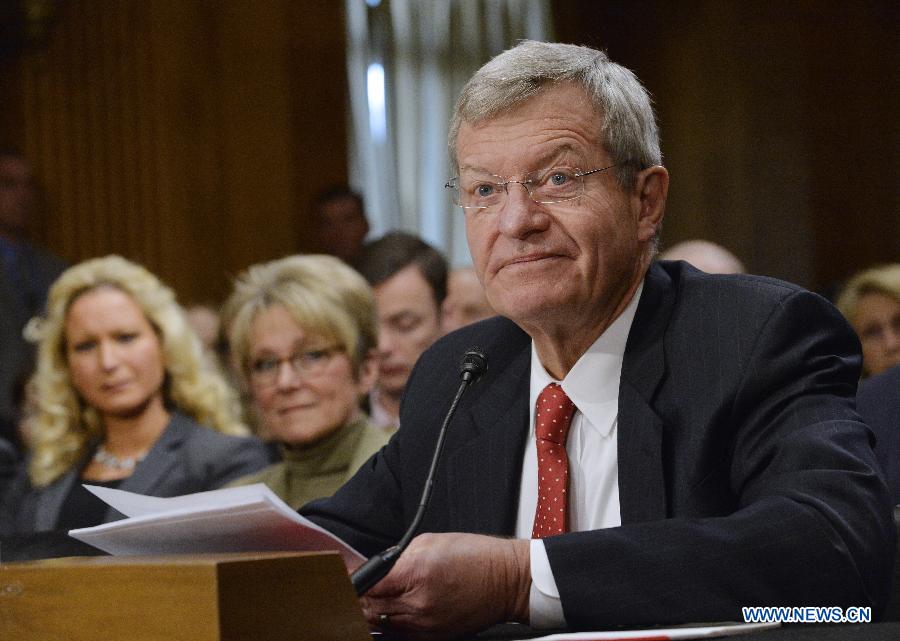 |
| File photo taken on Jan. 28, 2014 shows U.S. Senator Max Baucus testifying before the Senate Foreign Relations Committee on Capitol Hill in Washington D.C., capital of the United States. The U.S. Senate on Thursday confirmed Senator Max Baucus as the next ambassador to China. (Xinhua/Zhang Jun) |
BEIJING, Feb. 7 -- The U.S. Senate on Thursday confirmed Senator Max Baucus as the next ambassador to China, a key post in promoting one of the world's most important bilateral relations.
Baucus, known for his rich experience in trade issues and support for Obama's healthcare reform, has been the chairman of the Senate Finance Committee since 2007, which oversees tax, trade and healthcare policy.
He, who has traveled to China for more than a half dozen times, is notably a China expert, especially on economic and trade affairs, which makes him a wise choice for Washington to deal with the world's second largest and most vibrant economy.
The 73-year-old senator was the key person that facilitated the entry of China into the World Trade Organization in 2001 and boosted the normal development of economic ties with Beijing during his previous roles.
However, Baucus has also adopted a hard line against China's trade practices and currency exchange rate.
With a mixed record on the economic front, Baucus will start his new job at a time when relations between the United States and China are often disturbed by political squabble over the South China Sea.
Beijing has been annoyed by the U.S. meddling in its territorial disputes with Japan and some Southeast Asian countries.
Washington's backing has emboldened countries like Japan and the Philippines to take series of provocative moves, which worsened the already tense situation and complicated the efforts to seek an amicable solution through dialogue.
This means the new job in Beijing is no picnic for Baucus.
Instead of letting regional disputes derail the overall development of Washington-Beijing ties, the new U.S. ambassador to China could play a positive role in promoting bilateral relations, easing regional tensions, and contributing to peace and stability.
Despite all the frictions and disputes between the two countries, the top leaders from China and the United States have a general consensus on the building-up of a new type of major-country relations characterized by mutual respect and win-win cooperation.
Therefore, the first thing Baucus could do when he arrives in Beijing is to pick off his colored glasses on China's economy and learn more about the complexity of bilateral relations.
China welcomes the coming of Baucus, just as the world welcomes a sound development of Beijing-Washington ties.
It is expected that Baucus could take advantage of his position to strengthen political mutual trust, drive next phase of economic cooperation, foster military links, and contribute more to peace and stability in the region and the world at large.

 Int'l Snow Sculpture Art Expo in Harbin
Int'l Snow Sculpture Art Expo in Harbin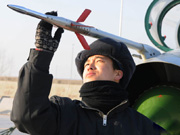 Su-30 fighter formation taking off for training
Su-30 fighter formation taking off for training  40-day spring travel rush starts on Jan. 16
40-day spring travel rush starts on Jan. 16 China's national pole dancing to play 'The Butterfly Love'
China's national pole dancing to play 'The Butterfly Love' Li Na crashes Belinda Bencic in 2nd round at Australian Open
Li Na crashes Belinda Bencic in 2nd round at Australian Open Chinese naval escort taskforce repels 4 suspicious vessels
Chinese naval escort taskforce repels 4 suspicious vessels In photos: Ten 'tuhao' devices in 2013
In photos: Ten 'tuhao' devices in 2013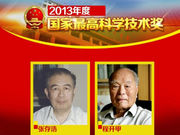 Two Chinese academicians win nation's top science award
Two Chinese academicians win nation's top science award Photo story: A sommelier's life
Photo story: A sommelier's life Film and TV studios worth visiting in China
Film and TV studios worth visiting in China Heart-warming Laba porridge
Heart-warming Laba porridge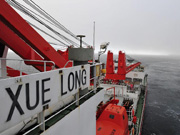 Gallery: China's trapped icebreaker makes successful escape
Gallery: China's trapped icebreaker makes successful escape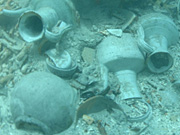 Archaeological study in the South China Sea: exploring the 'Maritime Silk Road'
Archaeological study in the South China Sea: exploring the 'Maritime Silk Road'
Day|Week|Month